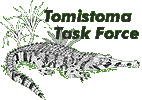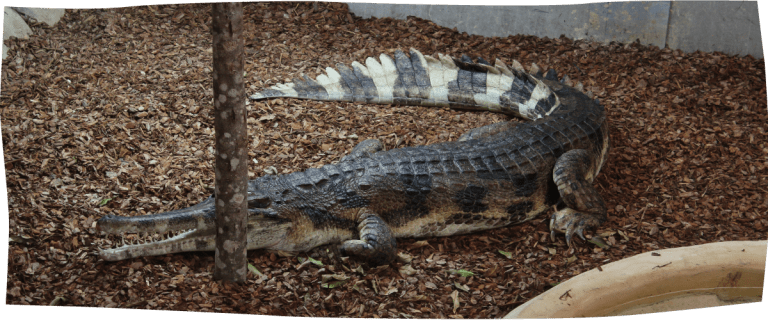Tomistoma Conservation
Protecting one of the world’s least-known crocodilians.
Since 2017, we have bred Tomistoma (the only zoo in the UK to do so), and by breeding and raising the young Tomistoma, we are learning more about these animals that could assist future conservation projects for the species that if based on releasing captive-bred young Tomistoma back into protected areas within their natural range.
What is the situation with Tomistoma in the wild, and what are we doing to help it out?
Tomistoma populations are small and scattered across a large area. Recent surveys in Peninsular Malaysia have not encountered a single specimen, and it is no longer found in Thailand. The island of Borneo seems to hold the largest numbers for the species, so much of the recent effort has been to try and quantify the number of animals in that region. In Sumatra, a recent study has concluded that Tomistoma should rightly be re-classified as ‘Endangered’.
Threats
Tomistoma inhabit freshwater swamps, particularly peat swamp forests. Unfortunately, these forests are being removed at an alarming rate. Many are being converted to palm oil plantations, others for logging (usually illegal) and for paper pulp mills. It is very clear that Tomistoma populations do not tolerate human activities very well, so the combined loss of habitat and increasing human activity within Tomistoma habitats is increasing the strain on the remaining populations.
How do you protect a croc species that is difficult to find, and naturally occurs in low numbers?
That’s really the trick to current Tomistoma conservation projects. Croc surveys generally look for crocodile eye-shines at night (their eyes reflect the light from a torch beam), or look for tracks and traces of crocodiles during the day. But Tomistoma are very hard to spot in these situations, and have historically been noted alongside other croc species for which the survey was initiated.
How your donation can help…
Tomistoma conservation is now largely coordinated by a specialist group called the Tomistoma Task Force. This group is a part of the Crocodile Specialist Group, and exists to guide surveys, research and conservation projects for the species.
The Tomistoma Task Force have organised a World Tomistoma Day each August since 2017 (see https://crocday.org/) to raise awareness for this amazing species. Crocodiles of the World has proudly been one of the key zoos supporting this initiative.
Crocodiles of the World are assisting researchers develop techniques that may help to locate Tomistoma in the wild. This will hopefully allow them to more accurately measure the wild numbers for the species which will in turn help us establish programs for Tomistoma conservation. We are also a part of the Tomistoma Task Force.
By donating we will together make a significant contribution that will allow work to continue in protecting this species.
| Where your money will go | Include Gift Aid | With Out Gift Aid |
|---|---|---|
| Tomistoma Conservation | Donate | Donate |


